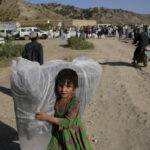BEIJING, June 25, 2022 /PRNewswire/ — Chinese President Xi Jinping highlighted the significance of placing development at the center of the international agenda at Friday’s High-level Dialogue on Global Development, stressing China will take pragmatic steps to continue supporting the UN 2030 Agenda for Sustainable Development, including adding $1 billion to a Global Development and South-South Cooperation Fund.
It is important that we put development front and center on the international agenda, deliver on the 2030 Agenda for Sustainable Development, and build political consensus to ensure everyone values development and all countries pursue cooperation together, Xi said while chairing the High-level Dialogue on Global Development in Beijing via video link on Friday evening.
He called on countries to build an open world economy and shape a global governance system and institutional environment that is more just and equitable.
Friday’s dialogue was taken after Thursday’s BRICS Summit, and leaders from 18 countries attended Friday evening’s event.
In addition to BRICS members, leaders from nations including Algeria, Argentina, Egypt, Indonesia, Iran, Kazakhstan, Senegal and Uzbekistan also attended the event.
Chinese analysts said the BRICS mechanism represents the future development direction of the world and a fast-emerging force that makes the world more equitable and inclusive.
Cooperation between BRICS nations and developing countries is pushing for a multipolar world, which is the future direction of the world order featuring balance, efficiency, equality and justice, analysts said.
To support the UN 2030 Agenda, Xi put forth the Global Development Initiative (GDI) at last year’s UN General Assembly session, and he said China will take pragmatic steps to continue supporting the UN agenda.
China will upgrade the South-South Cooperation Assistance Fund to a Global Development and South-South Cooperation Fund, and add $1 billion to the fund on top of the $3 billion already committed, the Chinese president said.
Xi said China will advance cooperation with all sides to deepen global cooperation on poverty reduction, build capacity for food production and supply and promote clean energy partnerships.
The Dialogue issued a Chair’s Statement saying leaders reached extensive consensus including commitment to multilateralism, development and people-centered approach.
And the Deliverables of the dialogue said China will take measures, such as providing 100,000 training opportunities for other developing countries to facilitate post-COVID economic recovery and social development, establishing an International Vaccines Research, Development and Innovation Alliance and officially launching the China-FAO South-South Cooperation Trust Fund Phase III of$50 million to support global development.
BRICS countries – Brazil, Russia, India, China, and South Africa – represent 40 percent of the world population, account for 25 percent of the global economy and 18 percent of world trade, and contribute 50 percent to the world’s economic growth.
Chinese and foreign analysts believe the BRICS provides developing countries a platform to build consensus on addressing acute development challenges, and the GDI is an accelerator to achieving the UN development goals.
Wang Wen, a professor and executive dean of the Chongyang Institute for Financial Studies at Renmin University of China, told the Global Times on Friday that one of the core tasks for achieving the UN Sustainable Development Goals (SDGs) is to end poverty, which is also the common goal for developing countries, and BRICS nations have made remarkable contributions to it. He noted BRICS nations are expected to help the world better achieve the UN 2030 Agenda with their experiences.
Carlos Watson, the Representative of the Food and Agriculture Organization of the United Nations in China, told the Global Times that BRICS countries, which account for more than 40 percent of the world’s population and produce more than one-third of global cereal production, are well-placed to take a leadership role in helping eradicate global hunger and poverty by 2030. He said developing countries look to the success of BRICS countries in economic development over the past few decades as an example to follow.
The GDI has received warm responses from the international community, with more than 100 countries expressing their support. In January 2022, the Group of Friends of the GDI was launched at the UN, and more than 50 countries have joined the group so far, according to the Global Development Report, published by the Center for International Knowledge on Development on Monday.
BRICS Plus
Friday’s event was attended by representatives of emerging markets and other developing countries aside from BRICS nations. Wang Wen believes the meeting was a format of “BRICS Plus” which demonstrated BRICS’ openness, inclusiveness and flexibility, especially compared with the closed and exclusive G7.
As the BRICS chair country, China actively supports the BRICS in starting the membership expansion process and expanding the “BRICS Plus” cooperation, and China will encourage all BRICS parties to formulate standards and procedures for membership expansion based on consensus, Chinese Foreign Ministry spokesperson Wang Wenbin said at Friday’s media briefing.
In the past years, each BRICS meeting invited different representatives of developing countries to better target that year’s main task, and this year, BRICS invited countries including Indonesia, the G20 presidency, and Argentina, the representative of Latin America, Wang Wen said.


View original content:https://www.prnewswire.com/news-releases/global-times-xi-stresses-placing-devt-at-the-center-of-intl-agenda-at-global-devt-dialogue-301575247.html
SOURCE Global Times



